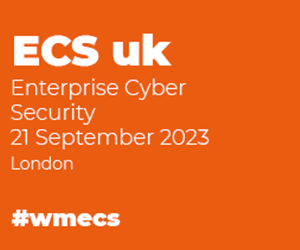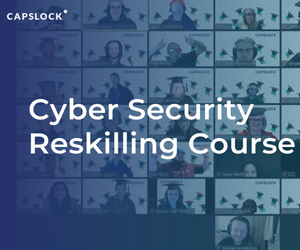Cyber Security Education
The need for cyber security professionals is growing quickly, and many online educational institutions make cybersecurity a priority. Earning third-party certifications is one of the essential steps in getting started in cyber security. This section is curate carefully to help you quickly browse and find the best cyber security training.
Featured Cyber Education and Training
MSc Cyber Security
A rigorous, part-time online program exploring how AI drives strategic innovation in business. You’ll analyze real-world case studies, learn to assess
LEARN MOREEditor's Choice
Bachelor’s Degrees in Applied Cyber Security (BACS)
Launch your new career from the best college in cybersecurity. As you complete the program, you’ll earn 4 certifications that prove you’re got the ski…
LEARN MOREFree Cyber Security Training – Anderson Technologies
Anderson Technologies team helps reduce the number of incidents of cybercrime by teaching your employees best practices and what to watch for.
…
Launching into Cyber Security
The module will explore and investigate the fundamental theories and practices of computing and then gradually explore the trends and current….
LEARN MOREMaster of Science Cyber Security in Computer Science
This program is designed to meet the fast-growing need for technical cybersecurity experts in national and international organizations, both in the pu…
LEARN MORE
Trending Educations
Bachelor’s Degrees in Applied Cyber Security (BACS)
Launch your new career from the best college in cybersecurity. As you complete the program, you’ll earn 4 certifications that prove you’re got the ski…
LEARN MOREFree Cyber Security Training – Anderson Technologies
Anderson Technologies team helps reduce the number of incidents of cybercrime by teaching your employees best practices and what to watch for.
…
Launching into Cyber Security
The module will explore and investigate the fundamental theories and practices of computing and then gradually explore the trends and current….
LEARN MOREMaster of Science Cyber Security in Computer Science
This program is designed to meet the fast-growing need for technical cybersecurity experts in national and international organizations, both in the pu…
LEARN MOREAll Listed Education A to Z
View All EducationsMSc Cyber Security
This 100% online and part-time MSc Cyber Security will introduce you to the key concepts and approaches used to protect an organisation’s cyber enviro…
LEARN MORELaunching into Cyber Security
The module will explore and investigate the fundamental theories and practices of computing and then gradually explore the trends and current….
LEARN MOREThe Master of Information and Cybersecurity
The module will explore and investigate the fundamental theories and practices of computing and then gradually explore the trends and current….
LEARN MOREUndergraduate Certificate in Applied Cyber Security (ACS)
Launch your new career from the best college in cybersecurity. As you complete the program, you’ll earn 4 certifications that prove you’re got the ski…
LEARN MORECyber Security Education
A degree in cyber security can open doors to high-paying positions in a rapidly expanding industry. There is a rising need to protect private information, applications, and networks in light of the widespread digitization of modern life. Yet, there aren’t enough trained cybersecurity professionals to meet this demand.
If you’re interested in cyber security education, you couldn’t have picked a better time. But where do you even begin? In the field of education in cyber security, what sort of education do employers typically require? And what kind of employment opportunities exist after graduation? Find out if a degree in cyber security is the correct choice for you by reading this helpful resource.
If you are a detail-oriented, analytical person with a collaborative attitude and the capacity to improvise, a job in cybersecurity may be a good fit. You’ll also require technical chops, such as arithmetic and computer sciences proficiency. Many employers prefer candidates with at least a bachelor’s degree in cybersecurity or a closely related profession.
Successful professionals in this field are creative thinkers who can solve problems quickly and calmly.
What Education is Needed for Cyber Security?
Cyber security education requirements involve Computer science fundamentals with an emphasis on information security is the focus of a bachelor’s degree in this field. The typical bachelor’s degree program requires four years of full-time study and 120 credits.
Some students get an associate’s degree in IT or CS and then transfer to a four-year university to finish their bachelor’s degree.
General education and computer science 101 are often required prerequisites for cybersecurity majors at the undergraduate level. Students then move on to more advanced coursework in areas like ethical hacking, network security, and security risk management as part of their cybersecurity degree programs. Bachelor’s degree programs often give students the groundwork they need to sit for certification exams offered by respected companies like (ISC)2 and CompTIA.
How Many Years of Schooling is Cyber Security?
The importance of education for cyber security is only going to rise as our increasingly digital culture demands it. Someone must diligently prevent hackers from accessing sensitive information such as medical records, personal details, and financial data. This is where the expertise of someone with a degree in cyber security, who can help to both prevent and deter cybercrime, comes in.
Many various measures can be taken to ensure that sensitive data is kept secure. Education, experience, and certifications are not the only things that matter regarding your career prospects in cyber security; they are the three critical criteria.
It takes two years to acquire an associate degree in cyber security, four years to earn a bachelor’s, and another two years to earn a master’s degree at a regular four-year university.
But if you’re interested in getting your degree quickly, accelerated programs can get you there in as little as 15 months for a master’s and 1.5 years for an associate’s.
The completion rate of both standard and accelerated programs is affected by various factors. Considerations may include time and place of classes, the number of credits previously earned, whether or not one is attending school full-time, and one’s motivation level. Although there is no such thing as a firm deadline for finishing school, you can understand how long it will take to graduate based on the pace at which you take classes.
What Degree Do I Need for a Career in Cyber Security?
You’re in luck if you’re interested in cyber security but can’t see yourself committing four years to a degree program. Information security professionals in training may find attending a cyber security boot camp as effective as, if not more so, going to university. While effective, the cyber security education online concept has its drawbacks.
Higher education cyber security provides students with practical, industry-specific training that makes them competitive candidates for entry-level positions in the cybersecurity industry. Since these intensive career-training programs contain a restricted range of disciplines, participants may not learn as much about theory and context as they would in a bachelor’s degree.
Online cyber security in education is preferable for working adults because of their shorter length and greater adaptability than traditional degree programmes. Flatiron School, for instance, provides both a full-time (15 weeks) and part-time (40 weeks) cyber security bootcamp. Six months is the duration of Springboard’s part-time program. Udacity offers several information security-focused courses that need only a ten-hour weekly time commitment over the course of four months.































